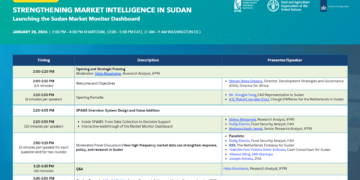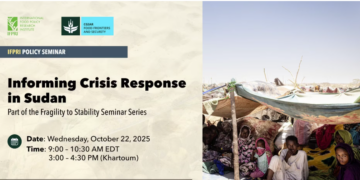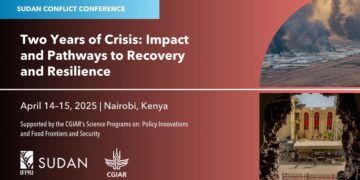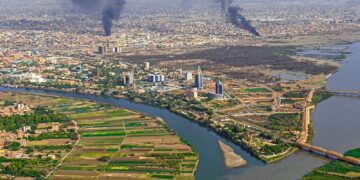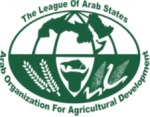Introduction Sudan is experiencing severe economic and market disruptions driven by prolonged conflict, political instability, and macroeconomic deterioration. These shocks have undermined agricultural production, fragmented supply chains, and destabilized markets, resulting in volatile food availability and affordability with stark regional disparities. In such fragile contexts, timely and granular market information is essential for guiding […]
Informing Crisis Response in Sudan
The armed conflict in Sudan, which erupted in April 2023, has created the world’s largest displacement crisis, and has left over 30 million of the 47.5 million Sudanese population needing multifaceted humanitarian assistance. To help inform the crisis response, this policy seminar will bring together researchers, practitioners, and humanitarian organizations working in Sudan to share […]
Two Years of Crisis: Impact and Pathways to Recovery and Resilience
Sudan Conflict Conference The Sudan conflict, now entering its third year, continues to devastate the country’s socioeconomic fabric. As of January 2025, more than 8.8 million people were internally displaced, and over 3.3 million had sought refuge in neighboring countries. Conservative reports estimate over 32,000 fatalities occurred between the start of the war on April […]
Sudan Conflict Conference: Navigating Recovery and Resilience
The International Food Policy Research Institute (IFPRI) Sudan is hosting the Sudan Conflict Conference: Navigating Recovery and Resilience to deliberate the different assessments conducted on the impact of the ongoing conflict and explore pathways for recovery and share relevant lessons from other parts of the world. 📅 Date: 14–15 April 2025📍 Venue: Trademark Hotel and […]
Policy Roundtable: Impact of Conflict on MSMEs in Sudan
The International Food Policy Research Institute (IFPRI - Sudan) and the United Nations Development Program (UNDP – Sudan) cordially invite you to a policy roundtable on the Impact of Conflict on MSMEs in Sudan. The event will feature the presentation of preliminary findings from the joint IFPRI – UNDP Sudan Report. 📅 Date: 26 February […]
